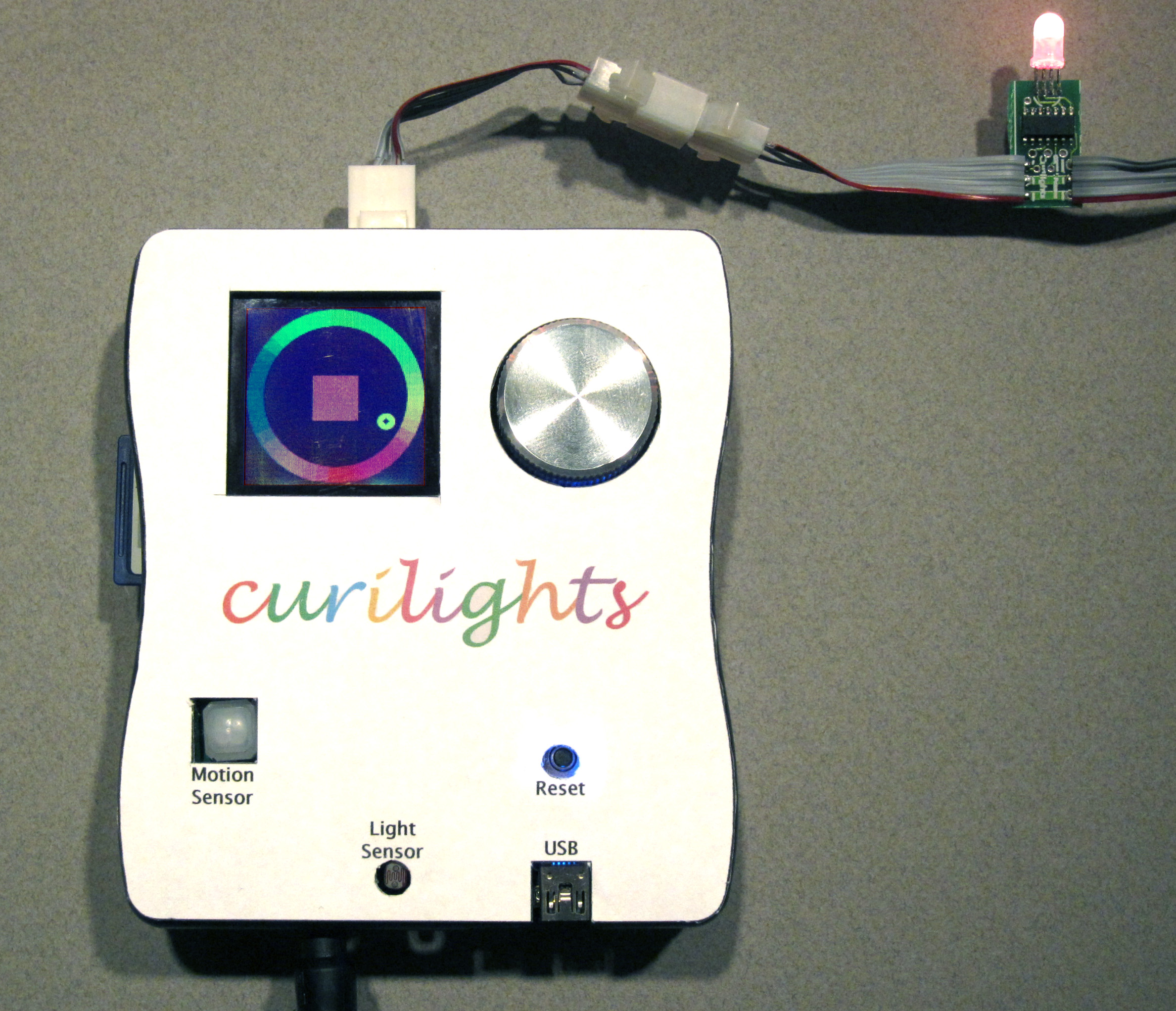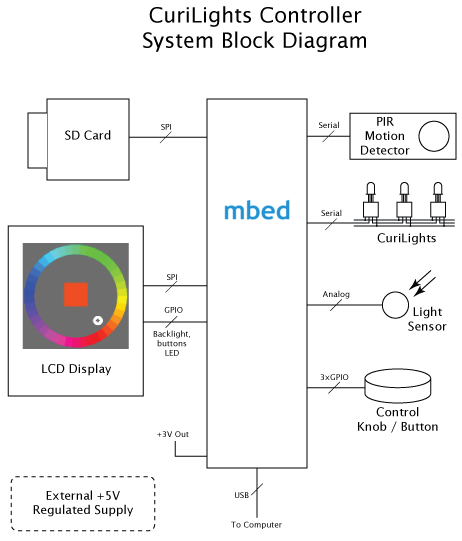Source code for the Curilights Controller. See http://www.saccade.com/writing/projects/CuriController/ for details.
Dependencies: FatFileSystem mbed
This is the source code for the Curilights controller. This lets you interactively control a string of Curilights. It provides a simple click-wheel user interface for changing colors, brightness and behavior. It responds to movement and lighting.
Finished Controller

System Block Diagram

LightString.h
- Committer:
- isonno
- Date:
- 2013-02-11
- Revision:
- 4:cfef06d8bb96
- Parent:
- 3:0ac64c4ca40f
File content as of revision 4:cfef06d8bb96:
//
// Tools for talking to the CuriLight string
//
#ifndef __LIGHTSTRING__
#define __LIGHTSTRING__
#ifndef MBED_H
#include "mbed.h"
#endif
#ifndef __LIGHTSNOOP__
#include "LightSnoop.h"
#endif
#include <vector>
class LightString
{
public:
// Note: We rely on the default serial configuration of 9600 8N1,
// this matches the CuriLights serial parameters.
LightString( PinName pin, int numLights );
// This sends an initialization to the string and configures it.
// If numLights is non-zero, the length of the light string is reset
void InitLights( int numLights = 0 );
int GetNumLights() const { return fNumLights; }
// The light code uses a "decimal RGB" notation, where
// the color is specified as a three digit number, with each
// digit from 0..7. The first (hundreds) digit specifies
// red, the second (tens) digit specifies green, and
// the last (ones) blue. So, for example, "700" specifies
// red, and "755" is pink.
void SetAllLights( int color );
// Set a single light (id == the Nth light in the string, starting from zero)
void SetOneColor( int color, uint8_t id );
// Set each light to the value in the corresponding array.
void SetColors( const vector<int>& colorList );
void Off() { SetAllLights( 0 ); }
void Red() { SetAllLights( 700 ); }
void Green() { SetAllLights( 70 ); }
void Blue() { SetAllLights( 7 ); }
void Ouch() { SetAllLights( 777 ); }
LightSnoop * Snoop() { return &fSnoop; }
void FlushOutput() { HandleOutgoingData(); };
void Debug();
private:
void sendCommand1( uint8_t ch );
void sendCommand2( uint8_t ch1, uint8_t ch2 );
void sendCommand3( uint8_t ch1, uint8_t ch2, uint8_t ch3 );
void HandleIncomingData();
void HandleOutgoingData();
// Note the top red bit is stripped off to fit in the byte, other
// code must manually add it back to the top bit if the light ID
uint8_t colorByte( uint8_t r, uint8_t g, uint8_t b )
{ return ((r & 3) << 6) | (g << 3) | b; }
uint8_t colorByte( int rgb, uint8_t& redBit )
{ redBit = ((rgb / 100) >> 2) << 7;
return colorByte( rgb/100, (rgb % 100) / 10, rgb % 10 );
}
/* uint8_t color( unsigned char * rgb, uint8_t& redBit )
{
redBit = ((rgb[0] - '0') >> 2) << 7;
return color( rgb[0] - '0', rgb[1] - '0', rgb[2] - '0' );
}
*/
Serial fLightsPort;
Serial fUSBPort;
int fNumLights;
LightSnoop fSnoop;
uint8_t fBuffer[384];
int fBufferInPos;
int fBufferOutPos;
};
#endif